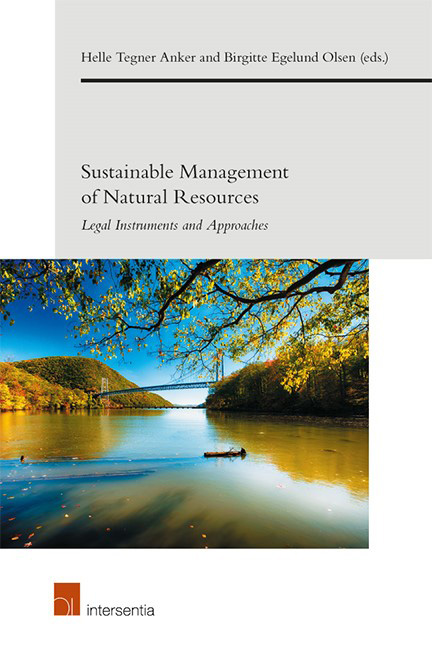Book contents
- Frontmatter
- Contents
- PART I INTRODUCTION
- PART II SUSTAINABILITY IN EU AND INTERNATIONAL LAW
- PART III SUSTAINABLE MANAGEMENT OF WASTE
- Chapter 5 Towards Responsible Management of Pharmaceutical Waste in the EU
- Chapter 6 Environmental Liability and Waste: Which Responsibilities for Landowners?
- PART IV ENVIRONMENTAL AND CLIMATE LITIGATION
- PART V ECOSYSTEM APPROACHES AND ADAPTIVE MANAGEMENT
- PART VI SUSTAINABLE RESOURCE MANAGEMENT: SPECIFIC ISSUES 193
Chapter 5 - Towards Responsible Management of Pharmaceutical Waste in the EU
from PART III - SUSTAINABLE MANAGEMENT OF WASTE
Published online by Cambridge University Press: 31 January 2019
- Frontmatter
- Contents
- PART I INTRODUCTION
- PART II SUSTAINABILITY IN EU AND INTERNATIONAL LAW
- PART III SUSTAINABLE MANAGEMENT OF WASTE
- Chapter 5 Towards Responsible Management of Pharmaceutical Waste in the EU
- Chapter 6 Environmental Liability and Waste: Which Responsibilities for Landowners?
- PART IV ENVIRONMENTAL AND CLIMATE LITIGATION
- PART V ECOSYSTEM APPROACHES AND ADAPTIVE MANAGEMENT
- PART VI SUSTAINABLE RESOURCE MANAGEMENT: SPECIFIC ISSUES 193
Summary
ABSTRACT
Medicines improve and save lives; however, when disposed to the environment, active pharmaceutical ingredients (APIs) designed to treat humans may have unintended negative effects on other species and ecosystems. APIs are released to the environment as waste during production, consumption and disposal of medicines. While scientific evidence of detrimental effects of pharmaceutical residue in the environment is growing, many gaps remain, causing regulatory inaction. This chapter introduces the issue of pharmaceutical waste and reviews the applicable legal framework. Unsurprisingly, it is found that the legal framework is far from comprehensive. On this background, we identify obstacles to sustainable pharmaceutical waste management and possible ways to overcome those and reflect on the issue of pharmaceutical waste management in light of the waste hierarchy. We argue that a shift in public discourse is necessary to allow for the adoption of precautionary, sustainable and life cycle-based legal measures. This shift should move the focus from balancing the environmental protection with public health to balancing individuals’ health concerns with public health protection (through the protection of the environment).
INTRODUCTION
Medicines improve and save lives; however, when disposed to the environment as waste, active pharmaceutical ingredients (APIs) designed to treat humans may have unintended negative effects on other species and ecosystems. Moreover, through their impact in the environment, they may also pose a threat to human health. Designed to act on living cells, to resist the acid environment of the stomach and to be administered according to a specific schedule, human pharmaceuticals impact the environment in a complex way. Of particular concern are endocrine-disrupting pharmaceuticals, cancer treatment drugs, antibiotics, anti-inflammatory drugs and sedatives. The pharmaceuticals in the environment (PiE) problem is recognized as a growing issue by academics, regulators, the general public and the pharmaceutical industry. Recently, the United Nations (UN) Strategic Approach to International Chemicals Management adopted ‘Environmentally Persistent Pharmaceutical Pollutants’ as an emerging policy issue. This chapter addresses the PiE from the waste management perspective.
- Type
- Chapter
- Information
- Sustainable Management of Natural ResourcesLegal Instruments and Approaches, pp. 65 - 80Publisher: IntersentiaPrint publication year: 2018
- 2
- Cited by



